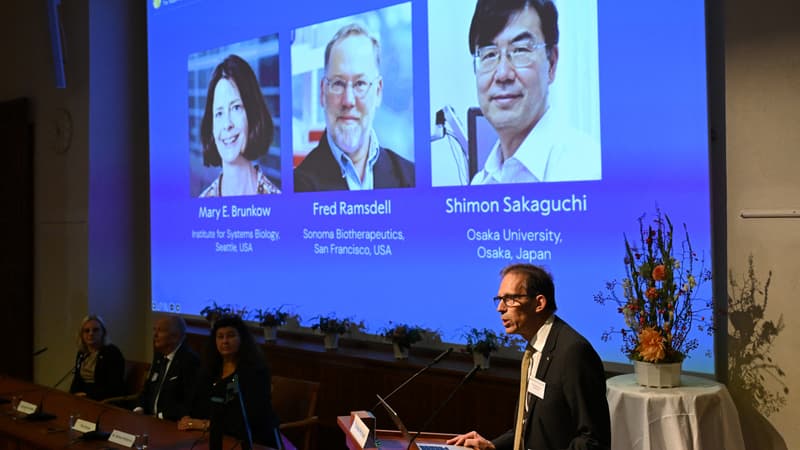The 2025 Nobel Prize in Medicine was awarded, this Monday, October 6, American researchers Mary E. Brunkow and Fred Ramsdell and Japanese Shimon Sakaguchi for their research on how the body controls the immune system. Reward its “discoveries regarding peripheral immune tolerance,” the Nobel Committee announced.
“The Nobel Prize in Physiology or Medicine this year focuses on how we control our immune system to fight all imaginable microbes while we avoid autoimmune diseases,” said Marie Wahren-Herlenius, professor at the Karolina Institute.
Every day, the immune system protects us from thousands of viruses, bacteria and other microbes that try to invade our body. However, complexity is in the appearance of these pathogens, because many of them have developed similarities with human cells to camouflage.
“The powerful immune system of the organization must be regulated, otherwise it runs the risk of attacking our own bodies,” explains the Nobel Committee.
“Decisive” discoveries for autoimmune diseases
In their work, the winners “identified the guards of the immune system, the regulatory T cells, which prevent immune cells from attracting our own body,” continues the committee.
Consequently, the discoveries of Mary E. Brunkow, born in 1961, Fred Ramsdell, 64, and Shimon Sakaguchi, 74, “the foundations for a new field of research sat and stimulated the development of new treatments, for example, for cancer and autoimmune diseases,” he adds. Several of these treatments are also subject to clinical trials, announces the Nobel Committee in place.
“His discoveries have been decisive for our understanding of the functioning of the immune system and the reasons why not all develop serious autoimmune diseases,” said Olle Kämpe, president of the Nobel Committee.
At the end of their appointment, the three winners receive a diploma, a gold medal and a check for 11 million Swedish crowns, or almost one million euros.
Source: BFM TV


